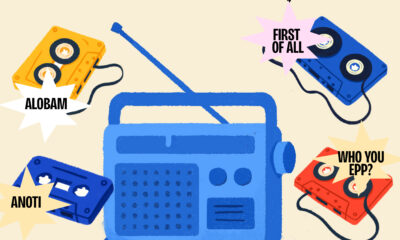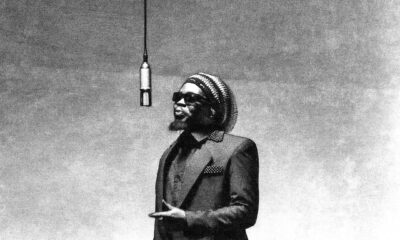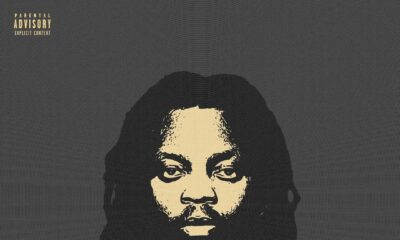Living
Rap Joint Lagos Creates a Contemporary Cultural Centre for an Intimate Lagos Lifestyle Experience!
by Ayo Adio
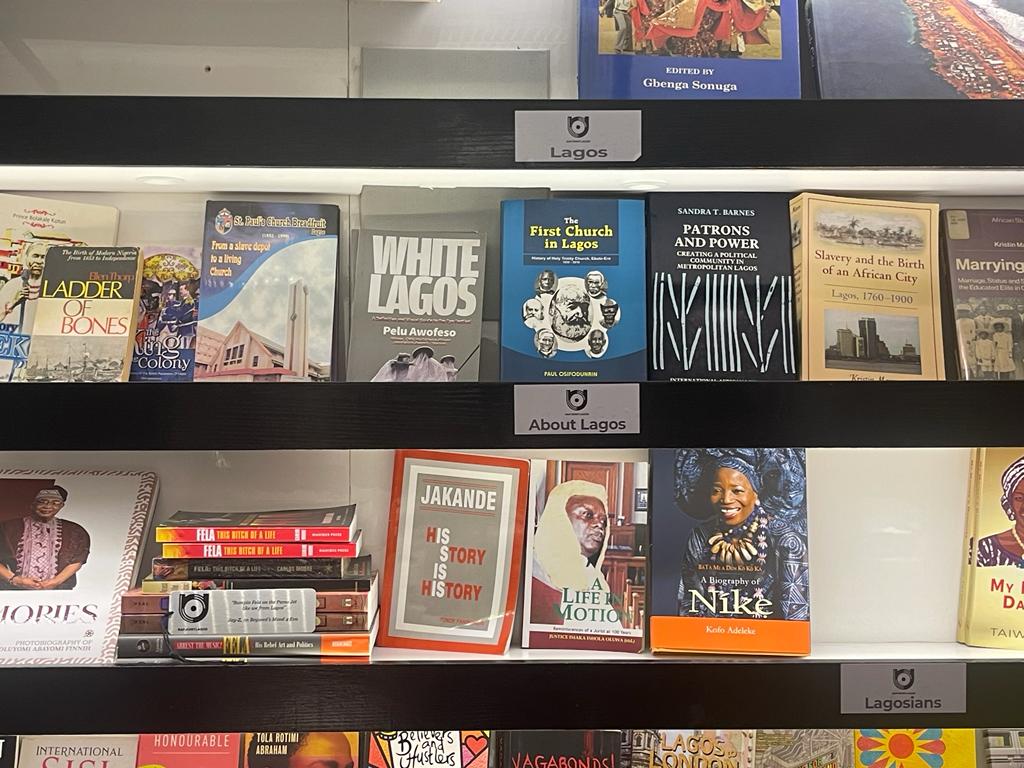
Rap Joint Lagos (RJL) is a contemporary cultural centre where everyone can relax and share intimate experiences about rap music and the life and style around it. It was conceived of the beauty and energy that hip-hop inspires in the City of Lagos.
RJL offers visitors a space to explore the genre’s philosophical and socio-political depth. It’s largely retro and nostalgic in focus. It also seeks to make music accessible to everyone with a listening point where about 500 donated CDs are available for the listening enjoyment of members of the public for free.
It also seeks to create a space for album listening events, lyrical dialogues, books about Rap, Lagos Lifestyle and Culture, as well as local and international Politics. It is a vibrant and safe venue both online and physically for anyone from anywhere in the world to connect seamlessly with the richest aspects of modern and contemporary hip-hop from a uniquely Lagos perspective.
Within its short period of existence, it has been named top 5 places for music lovers in Lagos(hoosocials), the top five stores for book lovers (Navi Africa), and got positive reviews from EatDrink Lagos and Lost in Lagos for its themed restaurant.
It’s a space that inspires intellectual discussion about Hip-Hop and Lagos. For example, whilst it is ironic discussing love joints (songs) in the same sentence as rap music being a genre notorious for celebrating violence and over-the-top misogyny.
Though it is a small part of the full picture. Nonetheless, love is a well-documented theme in the genre. The theme of love has helped rappers crossover into the mainstream and reach radio-friendly audiences: LL Cool J, Heavy D, Nas, Method Man, and many others.
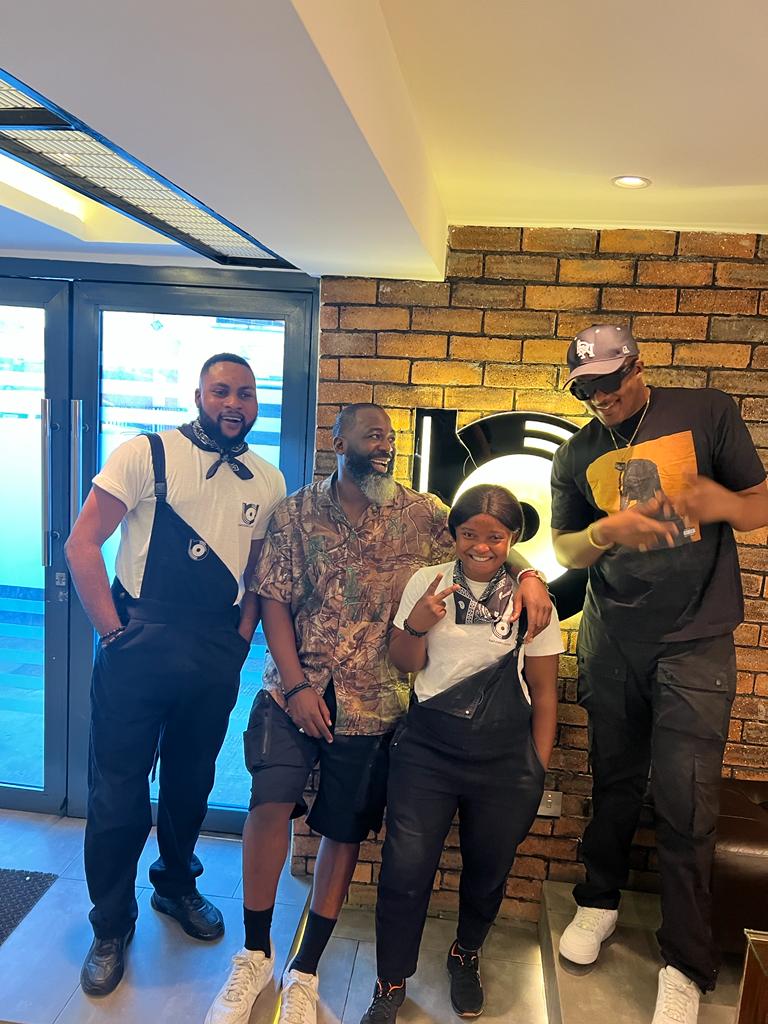
One of the founders, Wale Irokosu, had fun curating a playlist titled Love Joints. As he struggled in deciding whether to categorize some songs as battle/diss or love joints. He consulted with a fellow raphead and co-Founder of RapJointLagos, Gbolahan Opeodu, on the apt categorization of “Break Ups 2 Make Ups” by Method Man feat D’Angelo goes:
Wale: Ol’ boy, is this a love or diss joint?
Gbolahan Opeodu: It’s a bit of both. A tumultuous and maybe destructive relationship. The verses say one thing the hook says another.
Wale: D’Angelo was going mushy but Meth was abusing the life out of the lady!
Gbolahan: Lol. That’s typically how those relationships play out.
Wale: Abusive!! So, it goes to Battle/Diss category or love joint?
Gbolahan: Mehn, this one na Jamb question o! At a push, I would say love. It’s warped but it is what it is
Wale: Toxic love?
Gbolahan: 100%.
Wale: Calling someone’s circle of friends unprintable names? Iyen o bosi naw(that’s not good). she be ex-girlfriend naw.
Gbolahan: Yeah, I am putting the entire song in context. What I hear is a love/hate relationship. The break-up and makeup cycles.
Wale: O deep.
Gbolahan: I hate you when we are together but can’t live without you type yarns
Wale: True. Why Meth sef dey call the chick? Na ex guy.”
The toxic-sounding songs were eventually curated in a playlist referred to as “Tough Love”. These are the kind of discussions that the birth of Rap Joint Lagos encourages.
Wale Irokosu is a Lagos-centric attorney and Managing Partner, Probitas Partners LLP, whose love for hip-hop culture and Lagos led him to Co-found Rap Joint Lagos with like-minded Lagosians.
Whilst, Gbolahan Opeodu is the CEO of an agric tech company, Yeelda. They are 2 of 16 corporate rapheads that joined forces to set up Rap Joint Lagos. The Company is Chaired by ‘Labi Williams, a Hip-Hop head. Rap Joint Lagos is like a union or confederation of corporate rap heads and Lagos lovers.
Another Director, Didi Awosika, started his working career at MTV Africa before birthing Eureka Media. It’s a labor of love for the founders of Rap Joint Lagos.
RJL currently has 18 shareholders including the architect that designed the space, Rotimi Finnih, and the graphic designer that designed the brand, Osione Itegboje.
So, it’s truly a Hip-Hop and Lagos community founded and promoted by rapheads for rapheads. The organic growth of the Lagos hip-hop community and its ownership of the RJL is a big part of the focus and the sustainability of the idea.
I used to listen to rap with friends at home and we would sit down and dissect albums,” Wale recalls. Now triggered by a sense of displacement due to a lack of an apt space to enjoy rap music, he believes Rap Joint Lagos would fill that gap for many like him.
Many have moved on from the genre,” Wale continues. “Work, family, and life has weaned me and most of my friends off night clubs. We were just tired of enjoying it alone. It felt like there was nothing for people like me again in rap despite the love. We needed our own space.
Wale’s attraction to hip-hop began sometime around 1986 as a primary school pupil. It started with break dancing and soon moved to rap.
He would converge at his neighbour’s house during holidays especially when his mum wasn’t home, to tap tables and freestyle a few gibberish. Not long after, the relationship evolved as knowledge and interest in hip-hop became the definition of cool for his generation by the time he was getting into secondary school.
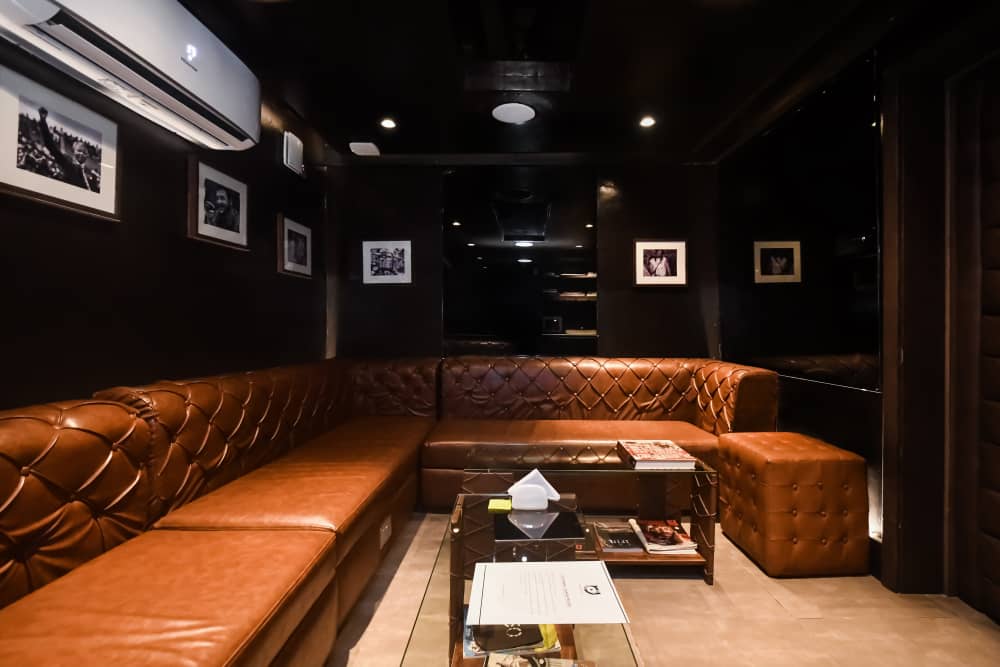
He admits that Life may have weaned him off a bit of the culture but certainly not the music.
“Now, I appreciate the literal, art, and philosophical content more than ever particularly the metaphorical wordplay,” Wale tells me. “It helps in painting vivid pictures in speaking and writing without saying too much,” he goes on, “some of the deepest things I have heard were from rap lyrics.” Some of those lines include: “the purest form of giving is anonymous to anonymous/no guilt in giving or receiving”; “you can’t help the poor if you are one of them/make money and give back/that’s a win-win”; “when you make blames you are defective/when you take blames you are respected”; “I’m like Che with the bling on/ I’m complex” and many more.”
He started curating playlists under the moniker “DJ Daggash” after the demise of his beloved mother. He developed a playlist of rap songs about mothers.
“They are so soulful and heart-warming,” he says while commending the song Dance by Nas.
Rap became his number one companion in pandemic lockdown solitude together with the Verzuz as things to look forward to. Now, he curates music for the listening enjoyment of visitors to the space.
His curated playlists include fathers, mothers, tributes, love, tough love, divorce, battle/diss, socially conscious, best of DJ Premier, Best of RZA, Best of Jadakiss, Nate Dogg-King of Hooks, Best of Lil Kim, Best of Foxy Brown, Hip-hop Props, Tupac-Love Joints, Nas-Love Joints, Jay-Z-Love Joints, Tributes Songs-Biggie; DJ Daggash Vol. 1, DJ Daggash Vol. II, Biggie Top 15, Earl “DMX” Simmon Lagos Candlelight Virgil, and others.
All visitors to the space have access to the music and can control what they listen to.
Wale is an obsessive Lagosian, who is particularly proud of the city’s ethnic and religious harmony, which he posits is unique. He pointed out that a Mosque(Enu Owa founded in 1787), a church (First Baptist Church,1879 ), and a traditional shrine where the Oba of Lagos is usually capped have existed side by side for centuries without any issue.
Most families have a good mix of Muslims, Christians, and traditional religious worshippers. And, are usually not discriminatory.
He also detests the reduction of the term “Lagosians” to indigenes. Anyone resident and paying tax in Lagos is a Lagosian. Though not an indigene.
New Yorkers are not necessarily native New Yorkers like wise Londoners or Romans. Only a cosmopolitan city stands a chance at the global level. Why judge a person by his ethnicity or religion he argued. He believes there is a Lagos, Lagos, and Lagos, Nigeria.
The former is the old colony that is radically different from the rest of Nigeria.
He is publicity shy but his mood changed, when he was asked to do this interview for the culture.
Speaking at a tribute organized for DMX at RJL, Wale spoke about the importance of a space where internally displaced rap heads can have a great time. Because hip-hop’s traditional hub is nightclubs, many hip-hop lovers struggle to balance the nightlife with their day job.
Hence, he believes he and his partners have created a centre where people can experience what they enjoy at nightclubs during the day. The listening lounge of the space allows visitors to enjoy the nightclub experience during the day.
Wale is also full of optimism. He believes hip-hop has a bright future.
“The fundamentals are strong, particularly the culture,” he argues. “It’s not a fad or trend. It can’t be wished away. It’s been around in Lagos for almost 50 years, in its present form. One thing about rap is authenticity. The realness. It’s unpretentious in spirit and body. You can’t fake things. Both adherents of the culture and the rappers.”
He is happy hip-hop “has been naturalized in Lagos with some rappers performing in agbada and their native language”. The ibile sub-genre of Lagos hip-hop. Dagrin, Olamide, Phyno, Kabex, and many more come to mind in maintaining the Lagos flavour.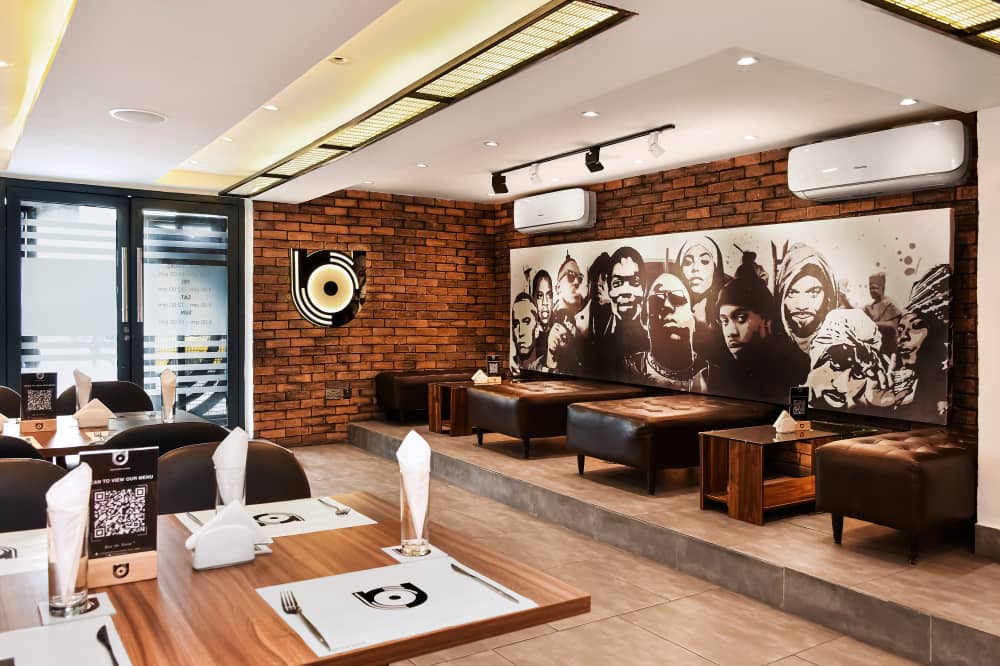
Rappers have to remain true to the art form. They have to study the business side and do better without selling out.
“I know this is not the US but if Dr. Dre, Jay-Z, and Kanye West are worth close to or over a billion dollars each, I don’t see why MI or Naeto or Modé 9 can’t be worth 10m dollars. These are very intelligent guys. How did Dr. Dre, Jay Z, and Kanye do it? It’s largely from the business or commercial side of rap not from record sales. The business side is another side of the same coin. Rap is aspirational in nature: the fans want to see aspirational stuff in your music. The bling. You can’t rap about it if you don’t live it. They won’t believe you. Rap requires growth and success to remain relevant.”
Beyond a space for rap heads and an excellent listening lounge, RJL arguably shelves the largest number of hip-hop and Lagos book titles in the world.
“I have been to a lot of bookstores, and I struggle to find as many hip-hop books and Lagos titles as we have at the Rap Joint Lagos in any of them.”
People can walk in to read some of these books for free while nodding their heads to rap songs. As much as Wale wants people to have an incredible listening experience, he also wants them to read. To learn more about the culture and the custodians, both Lagos and Hip-hop.
The space currently hosts a monthly drill rap gig, a monthly resident book club(Renegade), a historical society, and a monthly talk show(Lagos Yarns) in the offing. It’s hosted a DJ seminar as part of the annual hip-hop conference.
The hip-hop conference took place at the Mike Adenuga Centre on November 19th and Wale delivered a paper on “Hip-hop Economy & Lagos”. He believes the hip-hop economy has changed the economic trajectory of the black community in the US and the same can be replicated in Lagos.
He and his partners also have big dreams and visions. They want to export the RapJointLagos to all the major cities of the World.
“In this global recession period, the hip-hop economy is one of the growth areas that Lagosians can tap into to provide employment opportunities. Hip-hop has a strong global domineering culture. We will like to fill up the National Stadium for a concert as a mark of respect for Lagos. We will like to see RapJointLagos in Times Square and Piccadilly Circus. Hard Rock Cafe started in London and it’s in about 145 locations all over the world including Lagos. We are specialists in this City and the world needs to know”, he concluded.
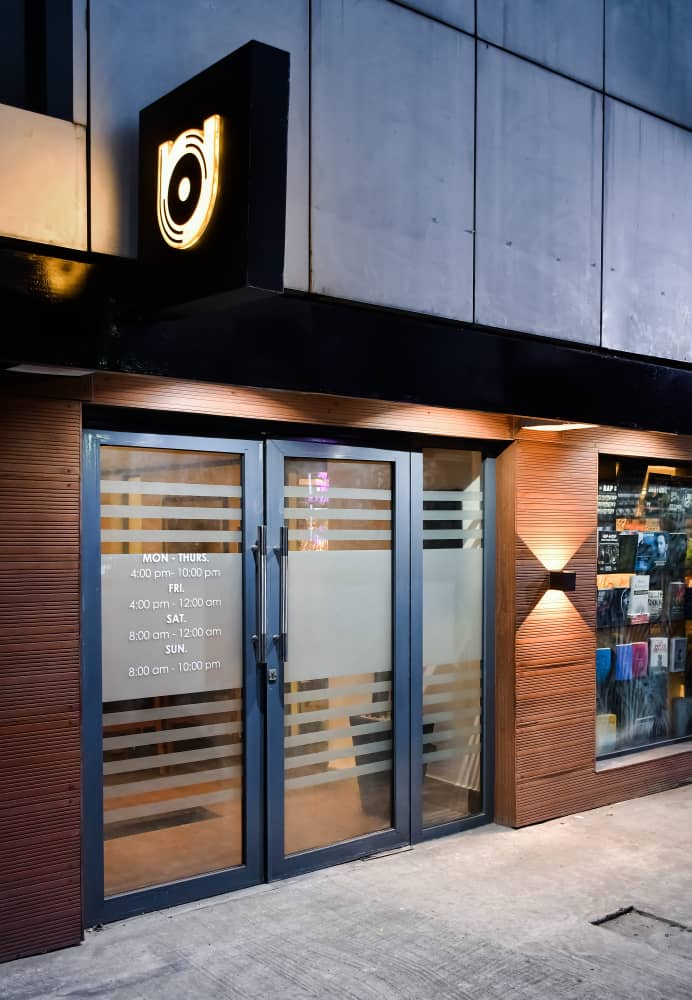
Visit their website for more information
Sponsored Content


